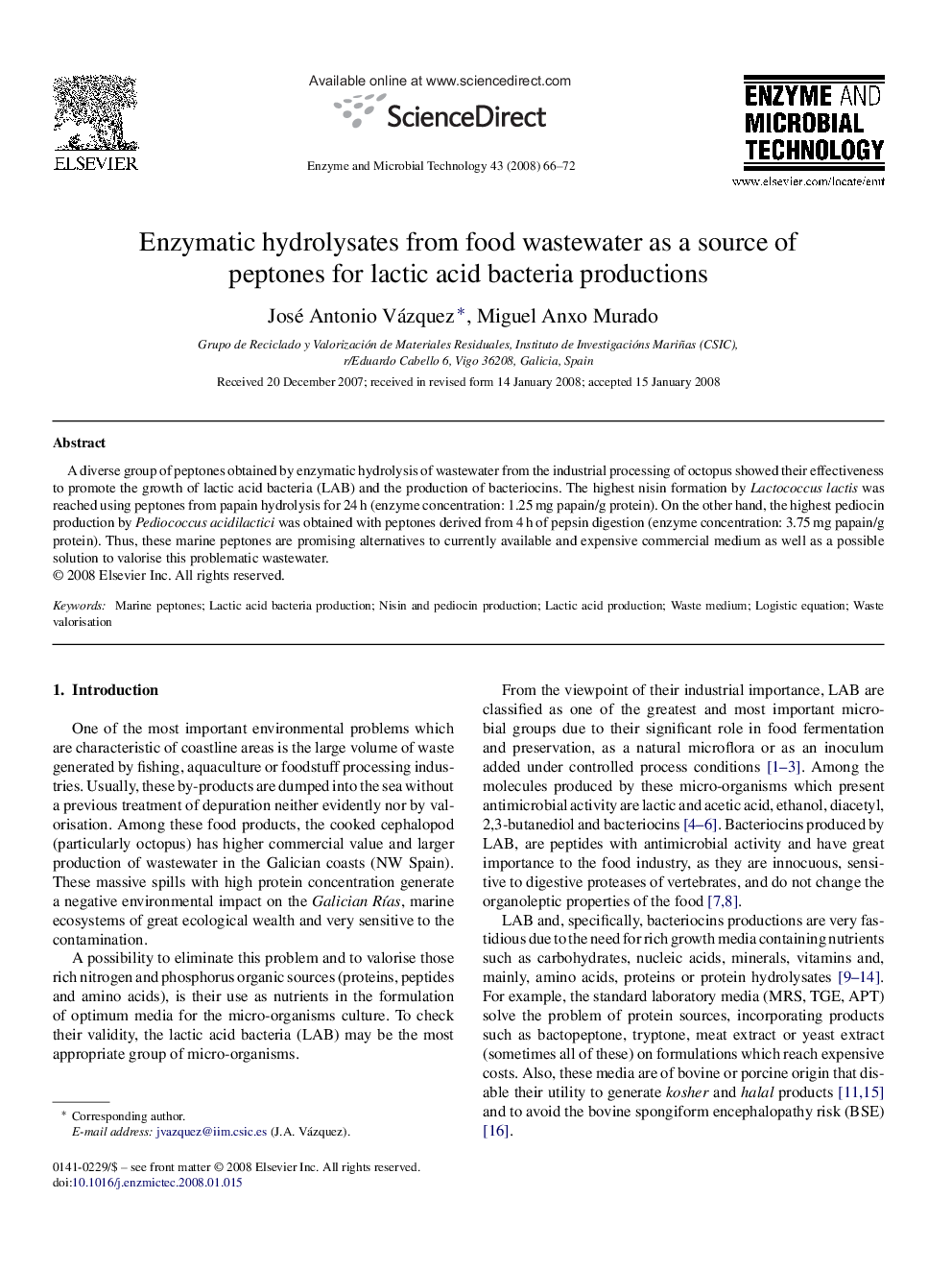| Article ID | Journal | Published Year | Pages | File Type |
|---|---|---|---|---|
| 17998 | Enzyme and Microbial Technology | 2008 | 7 Pages |
A diverse group of peptones obtained by enzymatic hydrolysis of wastewater from the industrial processing of octopus showed their effectiveness to promote the growth of lactic acid bacteria (LAB) and the production of bacteriocins. The highest nisin formation by Lactococcus lactis was reached using peptones from papain hydrolysis for 24 h (enzyme concentration: 1.25 mg papain/g protein). On the other hand, the highest pediocin production by Pediococcus acidilactici was obtained with peptones derived from 4 h of pepsin digestion (enzyme concentration: 3.75 mg papain/g protein). Thus, these marine peptones are promising alternatives to currently available and expensive commercial medium as well as a possible solution to valorise this problematic wastewater.
